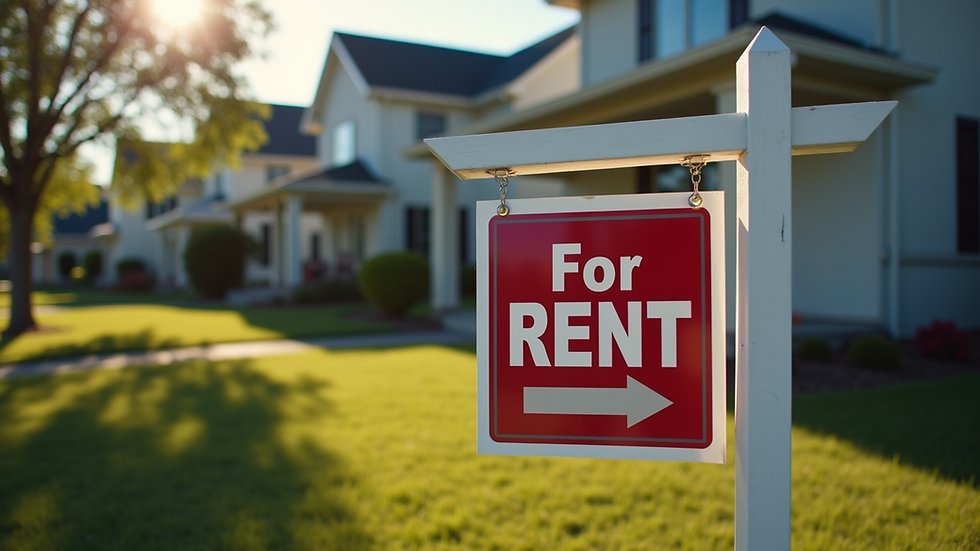Top Reasons to Attend Landlord Classes
- Christian Bryant

- Oct 7, 2025
- 4 min read
Managing residential rental properties in Oregon can be both rewarding and challenging. Over the years, I have found that staying informed about landlord-tenant laws and best business practices is essential for success. One of the best ways to gain this knowledge is by attending landlord education courses. These courses provide practical insights that help property managers, landlords, realtors, and real estate investors navigate the complexities of property management with confidence.
Why Landlord Education Courses Are Essential
Landlord education courses offer a structured way to learn about the legal and operational aspects of managing rental properties. Whether you are new to property management or have years of experience, these courses help you stay updated on Oregon’s ever-evolving landlord-tenant laws. For example, understanding the latest eviction procedures or security deposit regulations can save you time and money.
In addition to legal knowledge, these courses cover best practices for tenant screening, lease agreements, and property maintenance. This comprehensive approach ensures you are prepared to handle common challenges effectively. I have personally seen landlords reduce tenant turnover and avoid costly disputes by applying what they learned in these classes.
Key benefits include:
Staying compliant with state and local laws
Learning effective communication strategies with tenants
Improving tenant retention through better management
Reducing legal risks and potential lawsuits

What You Can Expect from Landlord Education Courses
When you enroll in landlord education courses, you can expect a mix of legal instruction, practical tips, and real-world examples. The curriculum often includes topics such as:
Oregon landlord-tenant laws - covering rights and responsibilities for both parties
Fair housing regulations - ensuring non-discriminatory practices
Lease drafting and enforcement - creating clear and enforceable agreements
Handling tenant disputes - mediation and conflict resolution techniques
Property maintenance and inspections - keeping your rental units in top condition
Many courses also provide sample documents and checklists that you can use immediately in your business. This hands-on approach makes it easier to implement what you learn.
For instance, after attending a recent course, I updated my lease agreement to include clearer language about pet policies and late fees. This simple change helped prevent misunderstandings and improved tenant satisfaction.

What is the 1% Rule for Landlords?
One of the most popular guidelines discussed in landlord education courses is the 1% rule. This rule helps landlords quickly evaluate whether a rental property is a good investment. The 1% rule states that the monthly rent should be at least 1% of the property's purchase price.
For example, if you buy a property for $200,000, you should aim to charge at least $2,000 per month in rent. This rule is a quick screening tool to determine if the property can generate enough income to cover expenses and provide a reasonable return.
While the 1% rule is not a guarantee of profitability, it helps landlords avoid properties that are unlikely to be cash flow positive. During landlord education courses, instructors often emphasize that this rule should be combined with a detailed analysis of expenses, vacancy rates, and local market conditions.
Applying the 1% rule has helped me focus on properties that meet my financial goals and avoid those that require excessive repairs or have low rental demand.

How Landlord Classes Improve Tenant Relationships
One of the most rewarding aspects of managing rental properties is building positive relationships with tenants. Landlord education courses teach communication skills and conflict resolution strategies that help landlords foster trust and respect.
For example, learning how to conduct thorough tenant screenings can prevent future problems by selecting responsible renters. Courses also cover how to handle maintenance requests promptly and professionally, which tenants greatly appreciate.
By applying these techniques, I have noticed fewer late rent payments and more lease renewals. Happy tenants are more likely to take care of the property and recommend it to others, reducing vacancy rates.
If you want to enhance your tenant relationships, I highly recommend exploring landlord classes that focus on interpersonal skills and customer service.
Staying Ahead with Continuing Education
The real estate market and landlord-tenant laws are constantly changing. Attending landlord education courses regularly ensures you stay ahead of new regulations and industry trends. For example, recent changes in Oregon’s eviction laws require landlords to follow specific procedures that differ from previous rules.
Continuing education also exposes you to new technologies and tools that can streamline property management. From online rent payment systems to digital lease signing platforms, these innovations save time and reduce errors.
By committing to ongoing learning, you position yourself as a knowledgeable and professional landlord. This reputation can attract better tenants and increase your property’s value over time.
Investing time in landlord education courses is one of the smartest decisions you can make as a property manager or landlord. These courses provide the knowledge and skills needed to run your rental business efficiently, comply with laws, and build strong tenant relationships. Whether you are just starting or looking to sharpen your expertise, attending these courses will pay dividends in the long run.



Comments